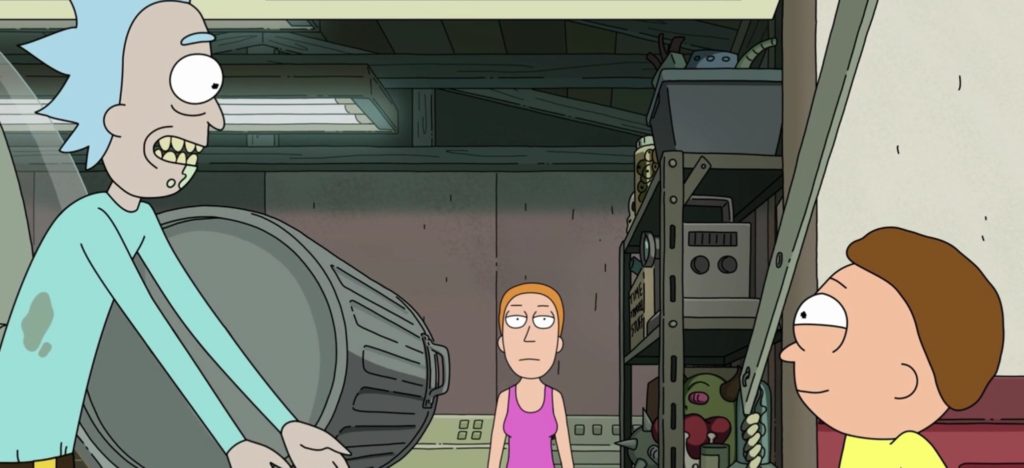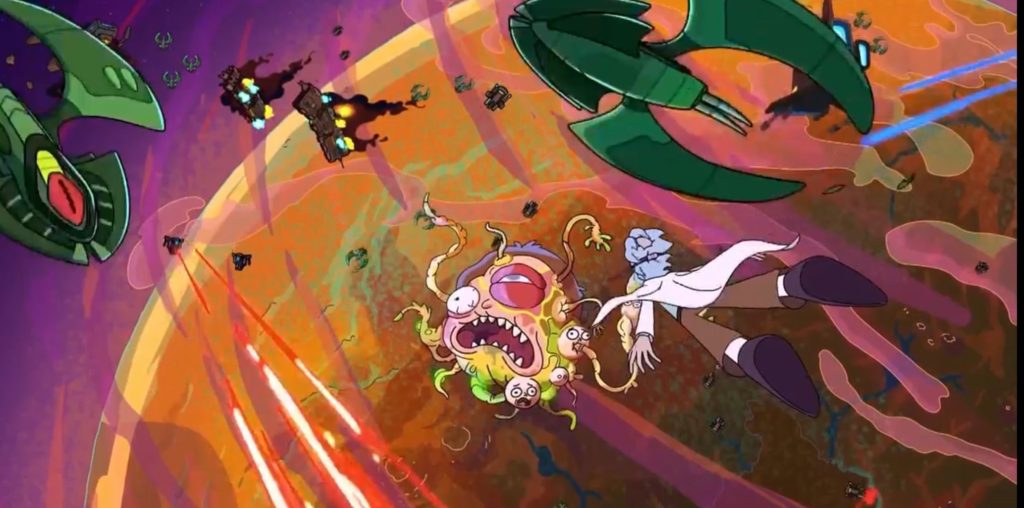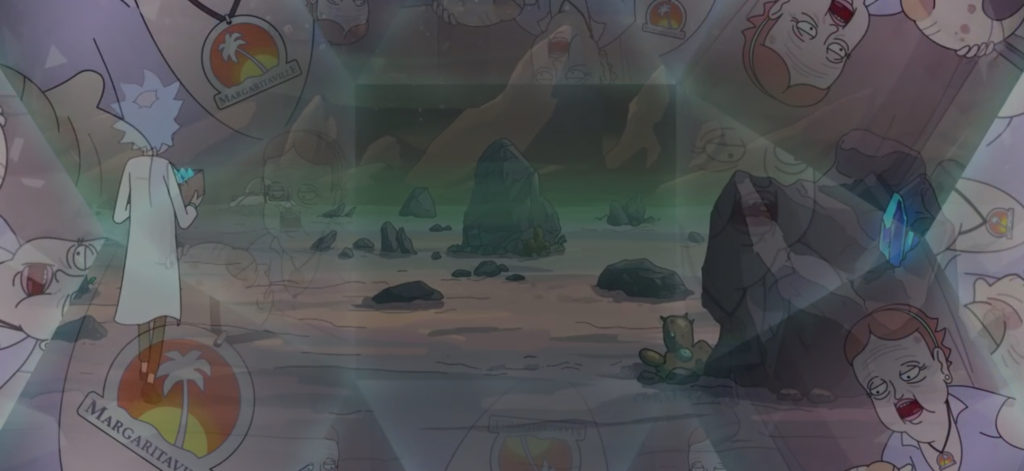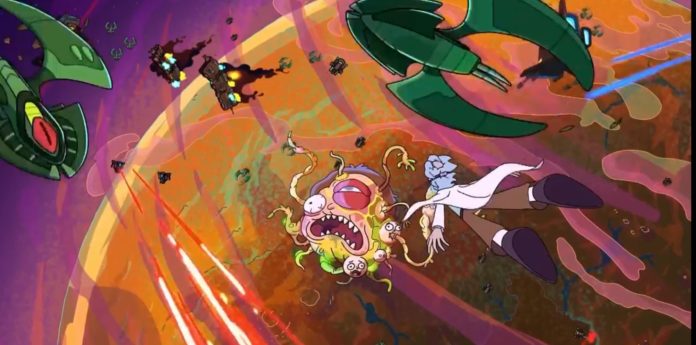
Rick and Morty’s Season 4 Premiere is Worthy of a Philosophical Treatise

Rick, the mad scientist whose genius–in stride with the medium of animation–provides the means to travel between dimensions and planes of reality, to defy death, and to survive the lot of existence, is the de facto God of this godless cartoon universe. As such, Rick thinks of life as a meaningless, mundane, and endlessly mutable phenomenon governed mostly by chance and indifference–and proceeds about life largely according to this view.
Morty, on the other hand, is relatively dim-witted, physically small, and chronically nervous. His insecurities, exacerbated by Rick’s near omnipotence, cause him to cling to, and lurch for, meaning, function, purpose, essence, whatever. It is often these dueling motivations/values which produces the show’s conflict and comic effect.

Season 4 of Rick and Morty

Season 4 Episode 1
Edge of Tomorty: Rick, Die, Rickpeat Review
Spoiler Alert Below

Morty’s portion of the narrative proceeds, by the force of his own neurotic will, in a conventional linear manner which, generally, strives to build meaning, themes, morals for the anxious spirit to dwell in, a destiny to quiet the cowardice.
Rick’s portion, however, proceeds, by the force of his own genius and arrogance, in a non-linear manner which is cyclical and recursive, almost quantum in nature. Moreover, the world in Rick’s tract of story is hostile towards him. It is no ready-made home with a ready-made destiny for you to figuratively imbibe upon when you’re feeling blue, only booze for you to literally imbibe upon.
The episode concludes with a perfunctory synthesis of the two worldviews, stated in such a sardonic, matter-of-fact voice that we’d rather dispense with the lesson and cycle back through the adventure for the sake of living and the joy it gives us, just to end up right back here, dispensing with the wisdom for the experience it ornaments.


